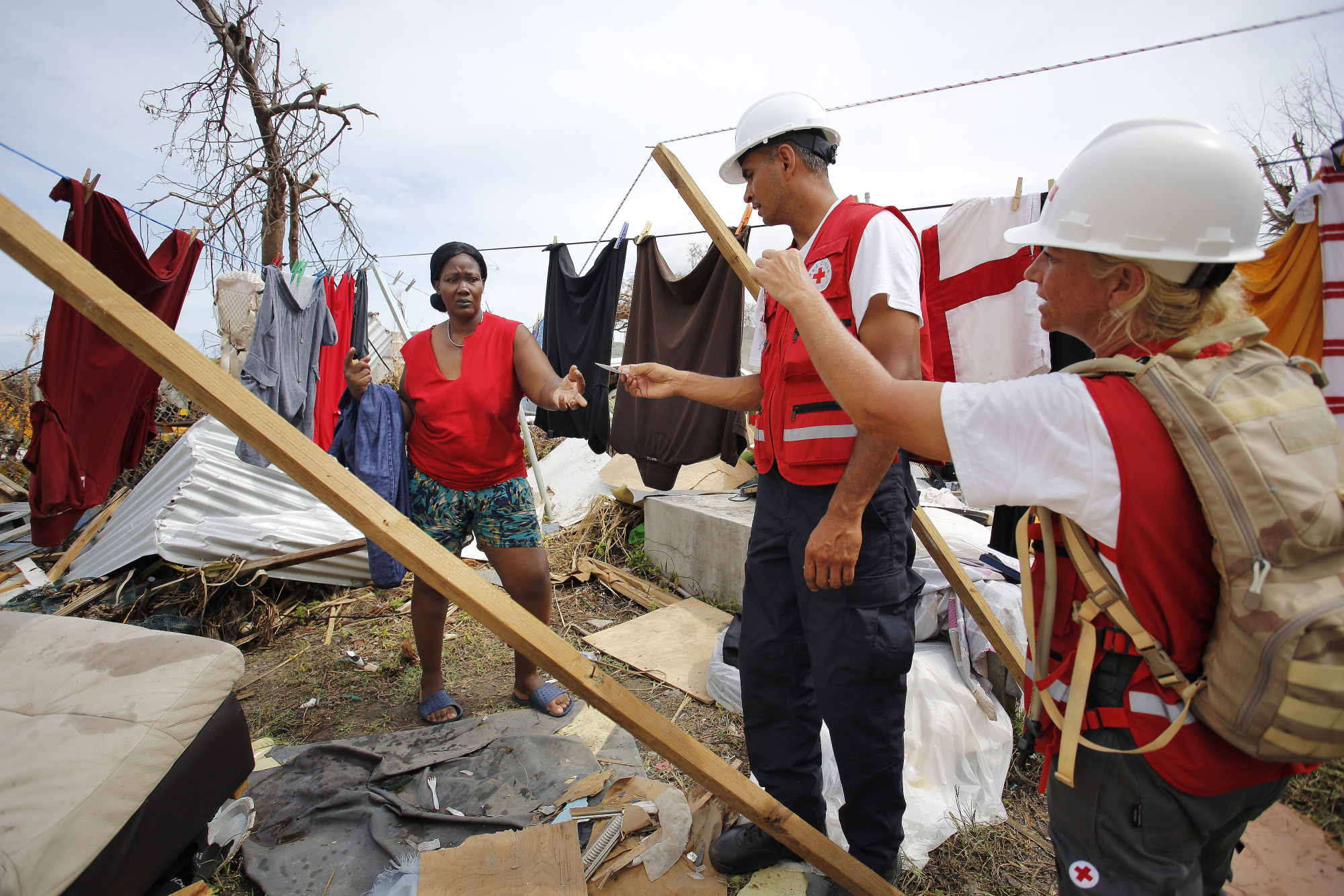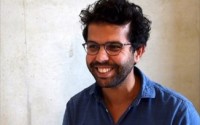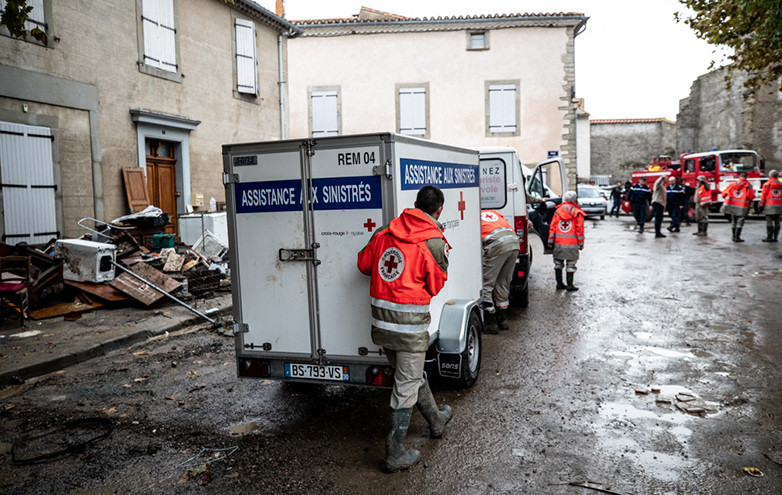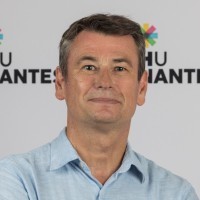The goal of the French Red Cross Foundation is to mobilize the scientific community to work with suffering populations in both the North and South of Africa, in order to develop concrete, sustainable responses. Within these parameters, it funds and assists independent francophone researchers, prioritizing those originating from the areas involved, by providing postdoctoral grants. These one-year grants are awarded to researchers from different social science disciplines, such as sociology and anthropology, to study common social and humanitarian action issues. The support of the AXA Research Fund makes it possible to fund two grants for work related to “Risks, Health and Humanitarianism” each year. The grants are intended to improve our understanding of effective humanitarian action in response to the health needs of vulnerable populations in crisis situations such as epidemics and natural disasters, or when facing global and systemic risks such as climate change, migration and malnutrition.

Researchers supported by the AXA Research Fund are working on the following projects:
Communication, education and behavior in combatting the plague in Madagascar. Dr. Alexandra Razafindrabe, Doctor of Economics (Université de la Réunion) – Class of 2019
Dr. Razafindrabe’s research focuses on improving the impact of public measures for preventing plague outbreaks in Madagascar in great part by raising awareness so that populations in areas at risk make changes in behavior. She is building on an analysis of plague prevention activity conducted in Madagascar in 2017 that raised many questions among both citizens and stakeholders in health, education and the environment. This research into the efficacy of measures taken to raise awareness, along with their long-term effects on the behavior of local populations, takes into account the socio-cultural, economic and environmental contexts that, to date, have not been adequately considered.
Socio-ecological resilience in vulnerable communities of the Senegal River delta in the face of climate change. Dr. Djiby Sambou, Doctor of Geography (Université Abomey Calavi, Bénin) – Class of 2019
The purpose of Dr. Sambou’s research is to study the socio-ecological vulnerability of the Senegal River delta to natural disasters and climate change, including the coastal Saint Louis communities’ perceptions of vulnerability, their means of adaptation and the likely scenarios of change.
Strengthening the socio-economic health subsystem at the local level and combatting health insecurity and difficulties accessing childcare and health services in the Central African refugee reception areas of Cameroon. Dr. Joséphine Lemouogue, Doctor of Geography (Université de Dschang, Cameroun) Class of 2019
The purpose of Dr. Lemouogue’s research is to study how public and humanitarian stakeholders approach the local integration of Central African refugees and manage the delivery of basic services in refugee reception areas in order to improve their capacities. She is specifically studying how the needs of children ages 0-5 are met.
Economic assessment of climate risk management tools: the case of drought risk in Niger. Prof. Mariama Nouhou KOUTCHA, Doctor and Professor of Agricultural Climatology and General Agronomy in the Faculty of Agronomy at the Islamic University in Say, Niger – Class of 2018
Prof. Mariama Nouhou KOUTCHA is developing an economic assessment, with a comparison between populations, of existing and prospective tools for protecting against climate risks in Niger, in order to determine the optimal combination. Her work involves identifying all mechanisms and stakeholders involved in climate risk management in Niger, micro-economic analysis of the impact of the mechanisms identified and recommendations for improvement.
The fight against malnutrition in Ivory Coast: measurement of and perspectives on use of the WASH and ATPC projects by local stakeholders in Bounkani. Dr. Edouard Kouadio KOUASSI, Doctor of Sociology and Researcher at the Center for Development Research (CRD) at the Université Alassane Ouattara in Bouaké, Ivory Coast – Class of 2018
The purpose of the research conducted by Edouard Kouadio KOUASSI is to assess the impact of the PADEHA program on malnutrition in the Bounkani area in Ivory Coast. The Ivorian government and its partners initiated the “Program to Support Accelerated Sustainable Access to Water, Hygiene and Purification” to reduce water-related health risks. It includes the presentation of a PADEHA assessment of malnutrition in the area and a recommendation of strategies for comprehensive adoption of means of sustainable population behavior change.
NGO responses to failures in the health system in northern Ivory Coast: palliative or substitute? Prof. Toily Anicet ZRAN, Doctor and Professor-Researcher of History, attached to the Center for Research on the History of the People of the African savanna (CRESHA) of the History Department of the Université Alassane Ouattara in Bouaké, Ivory Coast – Class of 2018
Access to health care remains very difficult in the former rebel-held areas of Ivory Coast, particularly in rural areas of the North, where the few dilapidated health facilities are now at crisis point. In these conditions, NGO support continues to be crucial to the health of the population. Toily Anicet ZRAN is focusing research on the impact and issues of NGO activity in the health sector in northern Ivory Coast in response to the lack of state health care delivery.
Projects for the class of 2020:
Daniel Valérie Baska Toussia - Doctor of Health Geography, Professor-Researcher in Geography attached to the Ecole Normale Supérieure graduate school, Université de Maroua.
Country of nationality: Cameroon
Scientific discipline: Geography
Country of research: Cameroon
The concentration of Nigerian refugees in the Minawao camp and internally displaced people in Zamay and Gawar is a result of rampant insecurity in the Lake Chad Basin. The situation compelled the Cameroonian government and its international partners to set up the Minawao camp in Mayo Tsanaga in order to deliver adequate humanitarian aid. Internally displaced people, who left their villages due to the insecurity perpetuated by the Boko Haram sect, are living around the camp in Zamay and Gawar. There are huge challenges with access to adequate healthcare for the various strata of this very vulnerable population that includes children, women, pregnant women, widows and orphans. The research is intended to assess the health problems of refugees living in the Minawao camp and internally displaced persons living in Zamay and Gawar, near the camp.
Annabelle Moatty - Doctor of Geography, Researcher attached to the UMR LGP (the joint research lab and physical geography unit - 8591), of the Université Paris 1 Panthéon-Sorbonne, Université Paris Est-Créteil and the French national center for scientific research (CNRS).
Country of nationality: France
Scientific discipline: Geography
Country of research: Saint Martin, Saint Barthélemy, Guadeloupe
Dr. Moatty is conducting a project called "Characterization and Analysis of Mechanisms of Solidarity Following Cyclone Irma" (CASCIRA). The purpose of the project is to characterize and analyze solidarity mechanisms implemented after Cyclone Irma passed through the northern islands, in order to understand their significance in the post-disaster resilience and adaptation process at different levels (from collective to individual). The novelty of this research lies in its comparative approach to solidarity mechanisms on the two French Antilles territories, Saint Martin and Saint Barthélemy, and their relationships with France and Guadeloupe. Such analysis is particularly relevant for these insular islands, where socio-cultural and territorial differences are both levers of action, and obstacles, if not taken into consideration, to the optimal reconstruction the government wants to achieve.
This partnership includes support for the Foundation’s Research Prizes of €5,000 each awarded to young doctoral students and more established researchers whose work or studies demonstrates bold, original ideas. The awards recognize basic or applied research on humanitarian or social action, regardless of discipline or nationality.
Discover research projects related to the topic
Mental Health & Neurology
Extreme Weather Events
Pollution
Alzheimer's Disease, Dementia & Neurodegenerative Diseases
Droughts & Heatwaves
Air Quality
Mécénat des Mutuelle
France
CLIMABRAIN: Impacts of Extreme Weather on the Most Vulnerable Living with Alzheimer's disease
In the context of the increase in extreme weather events due to climate change, the project led by Tarik Benmarhnia... Read more

Tarik
BENMARHNIA


